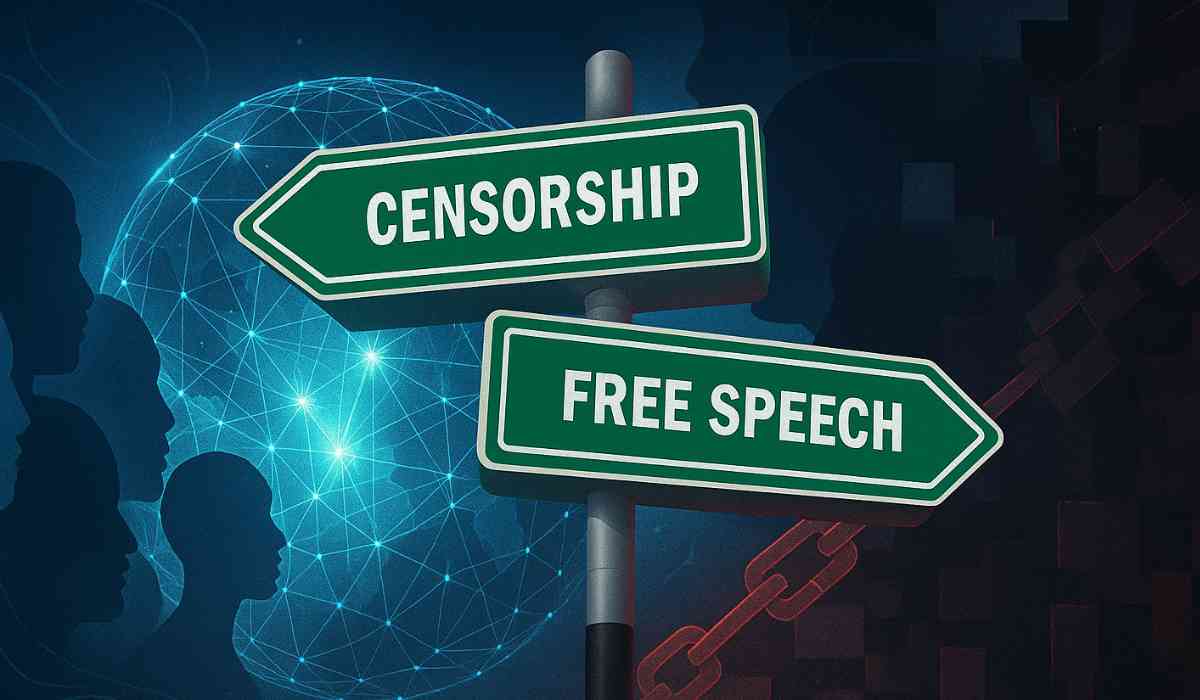The digital revolution has transformed how we communicate, share ideas, and access information. Free speech, once championed as a cornerstone of democracy, now faces unprecedented challenges in the digital age. The battleground for expression has shifted from public squares to online platforms, where algorithms, governments, and corporations increasingly shape what we see, hear, and say. This raises a critical question: Who controls the global narrative in a world caught between the ideals of free speech and the realities of digital censorship?
The Foundations of Free Speech in the Digital Age
Free Speech: A Pillar of Democracy
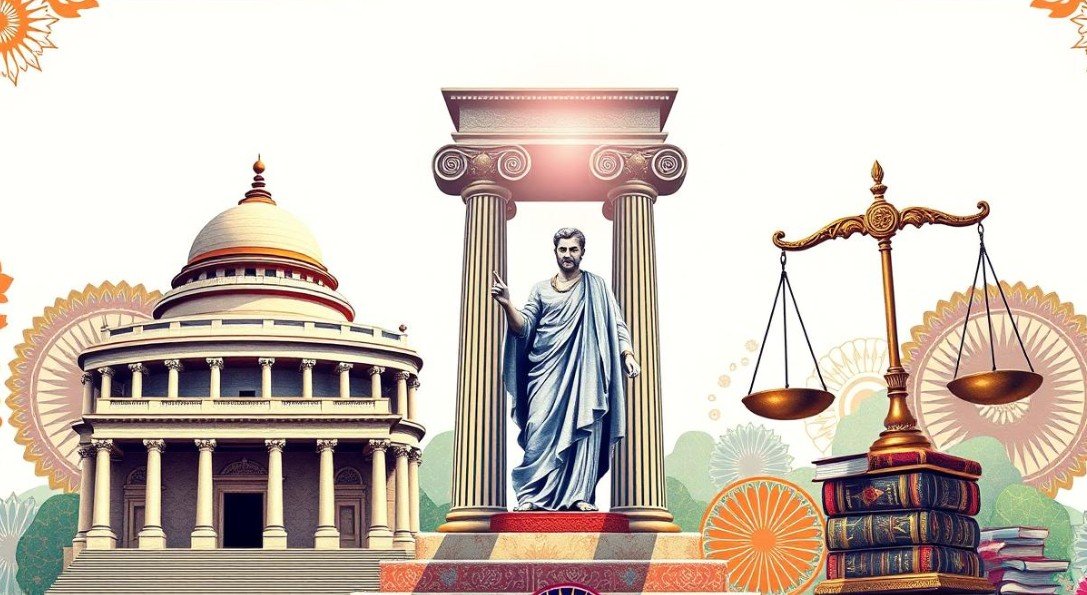
Free speech is not just a legal right but a foundational value underpinning democratic societies. It enables the exchange of ideas, the challenge of authority, and the pursuit of truth. In the United States, the First Amendment enshrines this right, positioning America as a global beacon for free expression. Around the world, a majority of people recognize the importance of free speech, with a median of 59% across 35 countries considering it "very important" for their societies.
The Digital Shift: New Opportunities and New Risks

The internet has amplified the reach of free speech, allowing anyone with a connection to broadcast their views globally. Social media platforms, blogs, and forums have democratized information, empowering marginalized voices and fostering global movements. However, this digital empowerment comes with risks: misinformation, hate speech, and foreign interference have all flourished in the unregulated corners of cyberspace.
Digital Censorship: The New Gatekeepers
Government Regulation and Its Global Spread
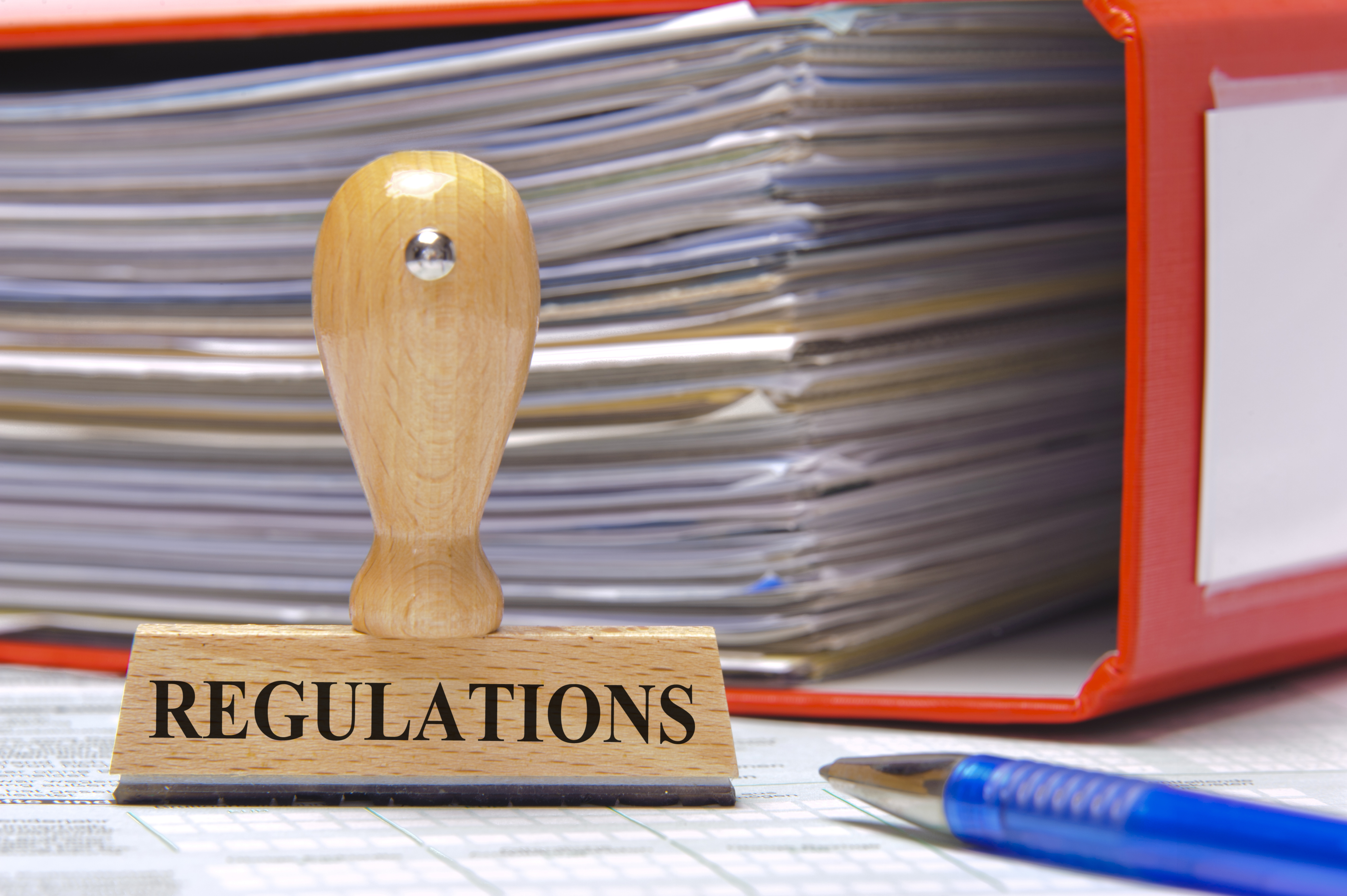
Governments worldwide are increasingly stepping in to regulate online speech. In Europe, sweeping laws like the UK’s Online Safety Act and the EU’s Digital Services Act grant authorities broad powers to dictate what content is permissible online, often under the guise of safety and security. These regulatory models are spreading globally, influencing legislation far beyond their borders, including in the United States and Australia.
Algorithmic Control: The Invisible Hand

Beyond government intervention, algorithms and artificial intelligence systems deployed by tech giants like Meta, Google, and X (formerly Twitter) play a crucial role in shaping online discourse. These systems decide which posts are promoted, which are suppressed, and which are removed entirely, often with little transparency or accountability. As Professor Jacob Mchangama notes, "Big Tech and new digital regulations increasingly decide what we can and cannot say," making them the new gatekeepers of free expression.
Corporate Moderation: Fact-Checking and Content Policies

Social media companies have responded to the challenges of misinformation and harmful content by implementing content moderation policies, including fact-checking partnerships and automated detection systems. However, these efforts are not without controversy. For instance, Meta’s recent rollback of third-party fact-checking has sparked debate over the balance between free speech and user safety, highlighting the complexities of platform governance in the digital age.
The Tension: Protecting Speech vs. Preventing Harm
The Case for Regulation
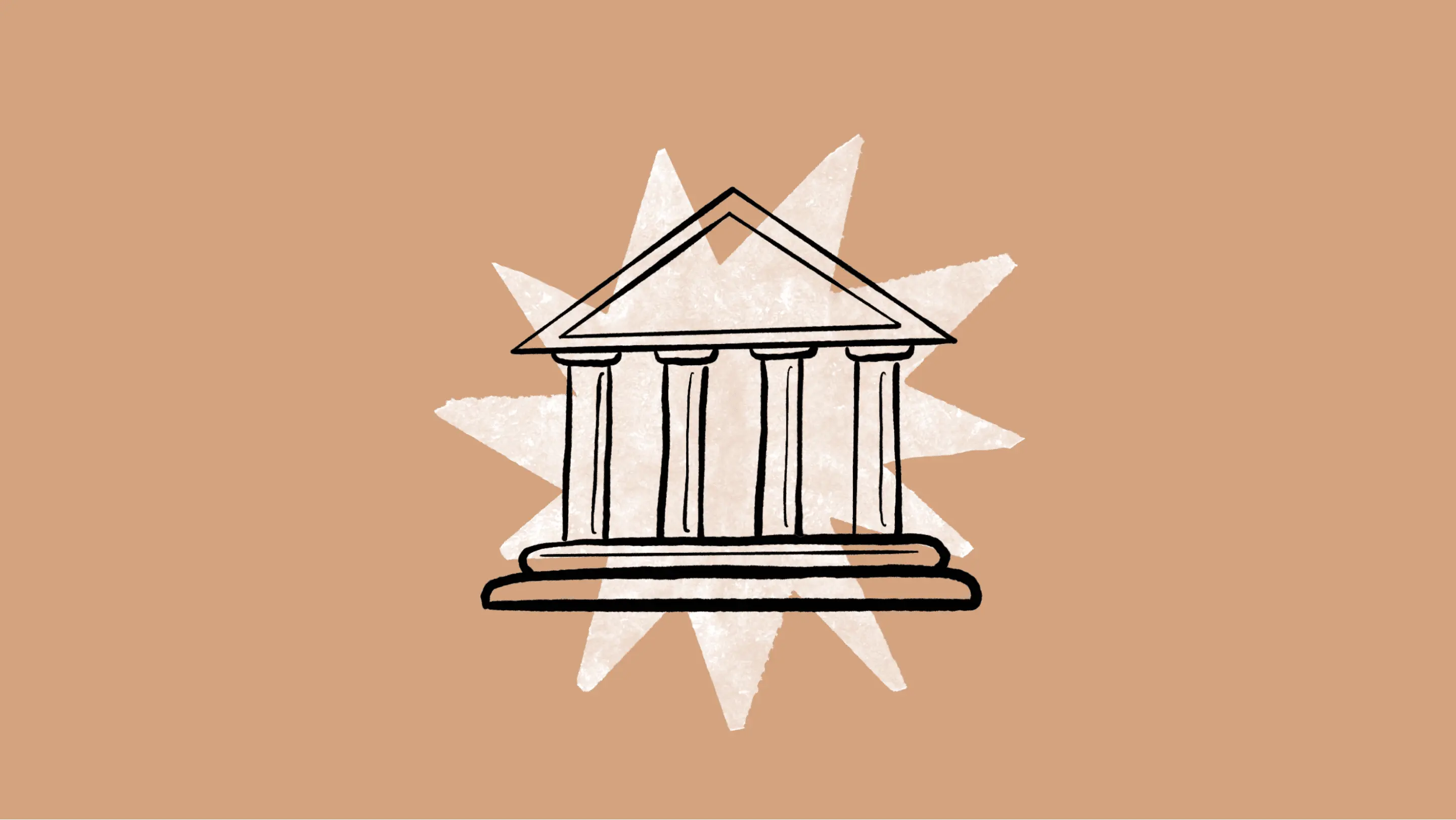
Advocates for online regulation argue that some level of content moderation is necessary to protect the marketplace of ideas. Without guardrails, platforms can become breeding grounds for harassment, extremism, and disinformation, undermining the very freedoms they seek to protect. Research shows that regulating online speech can actually safeguard free expression by ensuring that marginalized voices are not drowned out by abuse and falsehoods.
The Case Against Censorship

On the other hand, critics warn that government and corporate control over online speech risks stifling dissent and imposing ideological conformity. In the United States, recent executive actions have aimed to roll back federal involvement in online content moderation, citing concerns over unconstitutional censorship. Meanwhile, proposals like Project 2025 have drawn criticism for seeking to ban certain words and concepts from government discourse, raising fears of government overreach and the erosion of free expression.
Global Perspectives: Diverging Attitudes and Realities
Public Opinion: The Importance of Free Speech

Globally, there is strong support for free speech, but perceptions of actual freedom vary widely. In the United States, the share of people who believe they are "completely free" to use the internet or speak their minds has increased in recent years, though significant partisan divides remain. In many other countries, especially those with authoritarian regimes, digital censorship is a daily reality, with governments blocking websites, surveilling citizens, and punishing dissent.
The Free Speech Recession
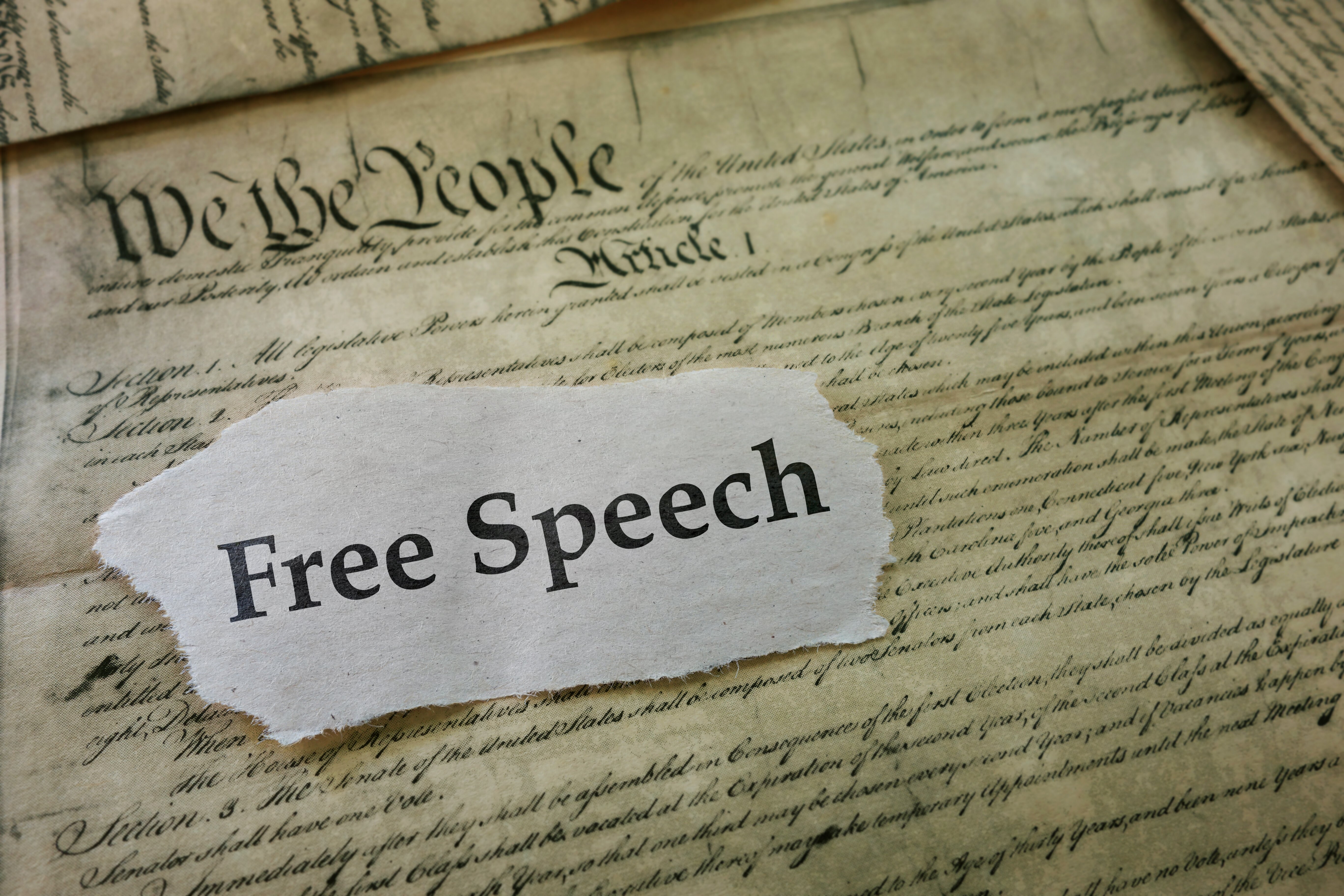
Experts warn of a "free speech recession" in the digital era, as both democratic and authoritarian governments adopt new tools to control online narratives. The combination of state regulation, corporate moderation, and algorithmic filtering has created a complex ecosystem where the boundaries of acceptable speech are constantly shifting—and often contested.
Who Controls the Global Narrative?

The Multiplicity of Gatekeepers
Today, control over the global narrative is fragmented among multiple actors:
-
Governments wield legal and regulatory power, setting the rules for what is permissible online.
-
Tech Companies enforce community standards and deploy algorithms that shape the flow of information.
-
Civil Society organizations and advocacy groups push back against censorship and defend free expression.
-
Users themselves play a role, both as creators and as participants in the digital public square.
This diffusion of control means that no single entity dominates the narrative, but it also creates opportunities for abuse, manipulation, and the silencing of dissenting voices.
Ideological Battles and the Risk of Conformity

Recent policy proposals, such as Project 2025 in the United States, illustrate the dangers of government-imposed ideological conformity. By seeking to ban words and reshape public discourse, such initiatives threaten to replace open debate with top-down control, undermining the very freedoms they claim to protect.
Algorithmic Bias and the Invisible Censor
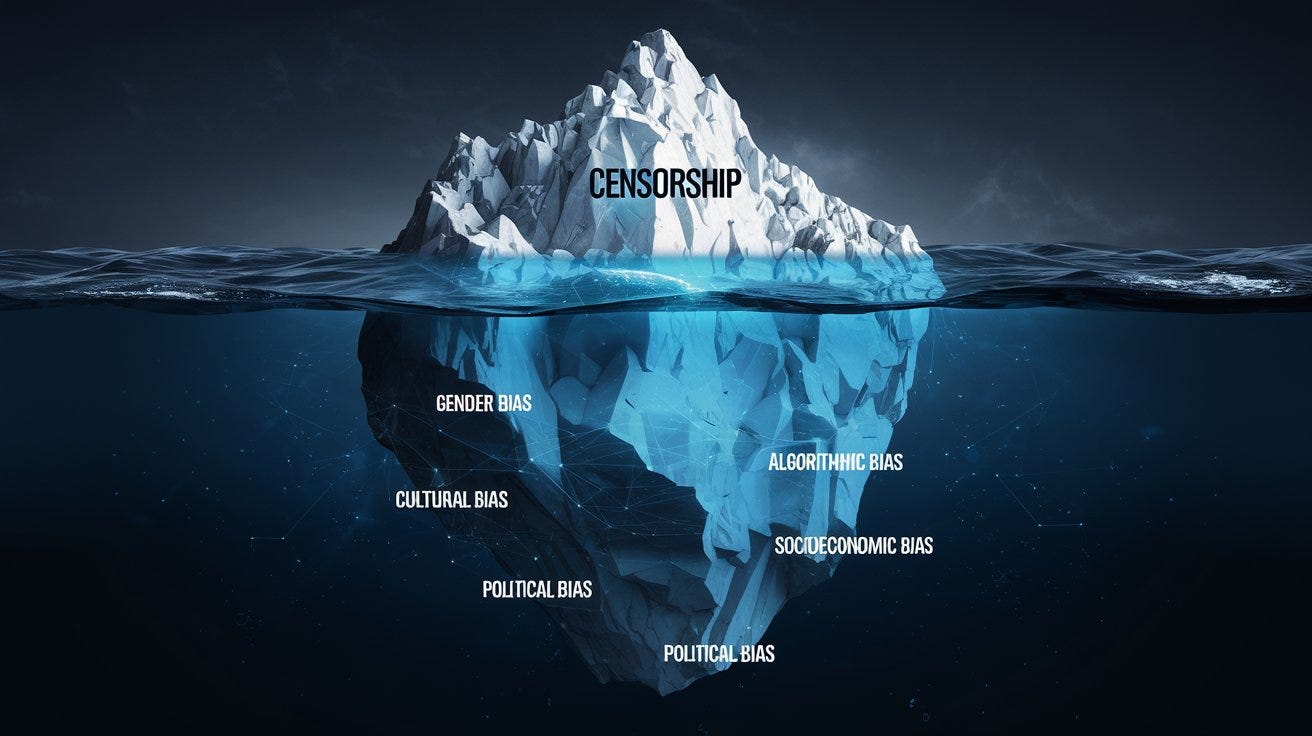
Algorithms, while ostensibly neutral, can reinforce existing biases and suppress minority viewpoints. The lack of transparency in how these systems operate makes it difficult for users to understand why certain content is promoted or removed, raising concerns about accountability and fairness.
The Path Forward: Balancing Freedom and Responsibility
Reaffirming the Value of Free Speech

To preserve free speech in the digital age, societies must reaffirm their commitment to open debate and the free exchange of ideas. This means resisting efforts to impose ideological conformity, whether from governments or corporations, and ensuring that all voices have the opportunity to be heard.
Transparency and Accountability

Greater transparency in how content is moderated—both by governments and tech companies—is essential. Clear guidelines, independent oversight, and avenues for appeal can help build trust and protect against abuses of power.
Empowering Users and Civil Society
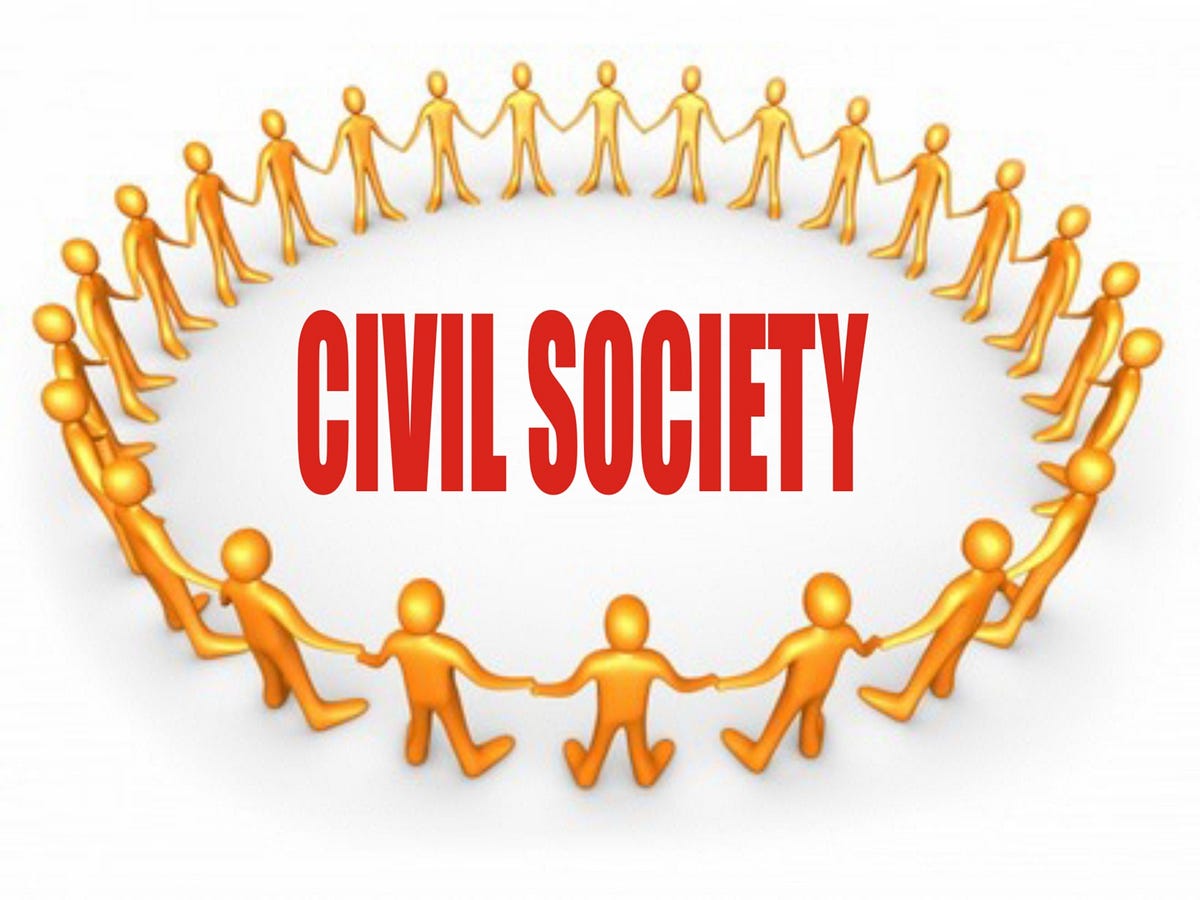
Users must be empowered to navigate the digital landscape responsibly, with access to tools for verifying information and reporting abuse. Civil society organizations play a critical role in defending free expression and holding both governments and corporations accountable.
Global Cooperation and Local Contexts

Given the global nature of the internet, international cooperation is needed to protect free speech across borders. However, solutions must also be tailored to local contexts, respecting cultural differences and legal traditions.
The Ongoing Battle for the Digital Public Square

The struggle between free speech and digital censorship is far from settled. As technology evolves and new challenges emerge, the question of who controls the global narrative will remain at the forefront of public debate. The answer will depend on the choices made by governments, corporations, and individuals alike.
In this new era, the defense of free speech requires vigilance, adaptability, and a renewed commitment to the principles that have long defined open societies. Only by balancing freedom with responsibility can we ensure that the digital public square remains a space for genuine dialogue, innovation, and progress—rather than a battleground for control and conformity.
With inputs from agencies
Image Source: Multiple agencies
© Copyright 2025. All Rights Reserved Powered by Vygr Media.

